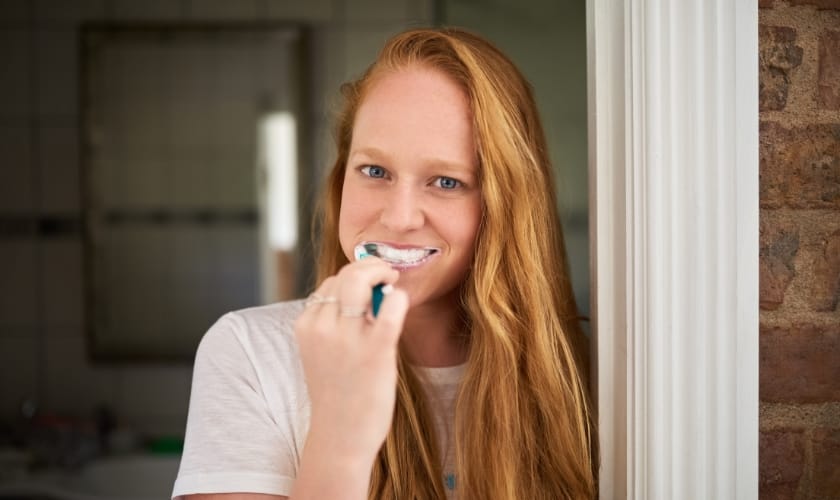Bad breath, or halitosis, is a common issue that can affect your confidence and social interactions. While occasional bad breath is often manageable with good oral hygiene, persistent halitosis requires a more comprehensive approach to address underlying causes and achieve long-lasting freshness. If you’re seeking to permanently get rid of bad breath, understanding its root causes and implementing effective strategies is key.
What are the Causes of Bad Breath?
- Poor Oral Hygiene: This is the most common cause of bad breath. Bacteria that accumulate on your teeth, tongue, and gums can produce volatile sulfur compounds, leading to an unpleasant odor.
- Plaque and Bacteria: Plaque buildup on your teeth, gums, and tongue provides a breeding ground for bacteria that produce foul-smelling sulfur compounds. Poor brushing and flossing habits can exacerbate this problem.
- Gum Disease: Gingivitis and periodontitis, infections of the gum tissue, can cause persistent bad breath due to the presence of bacteria and inflamed tissues.
- Odor-Causing Foods: Foods such as garlic, onions, and certain spices can leave lingering odors in your mouth. Additionally, sugary foods and drinks can promote bacterial growth, leading to bad breath.
- Dry Mouth (Xerostomia): Saliva helps wash away food particles and bacteria. A dry mouth, often caused by medication, dehydration, or certain medical conditions, reduces saliva flow and contributes to bad breath.
- Gastrointestinal Issues: Conditions such as acid reflux, gastrointestinal infections, and liver or kidney problems can lead to bad breath due to the presence of acidic or toxic substances in the mouth.
- Respiratory Infections: Sinus infections, post-nasal drip, and throat infections can lead to bad breath by causing mucus buildup and bacterial growth.
- Smoking and Tobacco Use: Tobacco products can stain teeth, cause bad breath, and increase the risk of oral health problems.
- Medications: Some medications cause dry mouth or have strong odors that can contribute to bad breath. Medications affecting saliva production or digestion may also play a role.
What are the Strategies for Permanently Eliminating Bad Breath?
Practice Excellent Oral Hygiene Routine
- Brush Regularly: Brush your teeth at least twice a day using fluoride toothpaste. Pay attention to brushing all surfaces, including the back of your teeth and your tongue.
- Floss Daily: Flossing helps remove food particles and plaque from between your teeth and under the gumline, areas that your toothbrush might miss.
- Use a Tongue Scraper: The surface of your tongue can harbor bacteria and dead cells. Using a tongue scraper or the back of your toothbrush can help reduce bacteria and improve breath.
Stay Hydrated
- Drink Plenty of Water: Adequate hydration helps maintain saliva production and washes away food particles and bacteria. Aim to drink at least eight glasses of water a day.
- Avoid Dehydrating Beverages: Limit the intake of caffeine and alcohol, which can contribute to dry mouth and exacerbate bad breath.
Use Mouthwash Effectively
- Antimicrobial Mouthwash: Use an antimicrobial or antiseptic mouthwash to help kill bacteria and reduce plaque. Look for mouthwashes containing essential oils or chlorhexidine for added effectiveness.
- Alcohol-Free Options: Opt for alcohol-free mouthwashes if you experience dryness or irritation, as alcohol can worsen dry mouth.
Modify Your Diet
- Limit Odor-Causing Foods: Reduce your intake of strong-smelling foods like garlic and onions. Rinse your mouth with water or chew sugar-free gum after consuming these foods to minimize their impact.
- Choose Breath-Freshening Foods: Incorporate fruits and vegetables like apples, carrots, and celery into your diet. These foods help stimulate saliva production and freshen breath.
Address Dry Mouth
- Use Saliva Substitutes: Over-the-counter saliva substitutes can help alleviate dry mouth. Look for products designed to increase moisture and comfort in the mouth.
- Chew Sugar-Free Gum: Chewing sugar-free gum can stimulate saliva production and help keep your mouth moist.
Seek Professional Dental Care
- Regular Checkups and Cleanings: Schedule regular dental checkups and professional teeth cleanings with your Dublin dentist. Your dentist can detect and address any dental problems that may be causing bad breath.
- Treatment for Gum Disease: If you have gum disease, your dentist will provide treatment to address the infection and reduce bad breath.
Consider Lifestyle Changes
- Avoid Smoking: Smoking and tobacco use can contribute to bad breath and harm your oral health. Quitting smoking can improve breath and overall dental hygiene.
- Manage Stress: Stress can contribute to dry mouth and exacerbate bad breath. Practice stress management techniques such as exercise, meditation, or relaxation exercises.
Permanently eliminating bad breath requires a combination of proper oral hygiene, lifestyle changes, and addressing underlying health conditions. By improving your oral care, staying hydrated, using mouthwash correctly, adjusting your diet, and seeking professional dental care, you can achieve long-lasting freshness and better overall oral health. If bad breath continues despite your efforts, consult Dr. Dennison, your trusted Dublin dentist, for further advice and personalized solutions. With the right approach, you can enjoy a confident smile and fresh breath every day.

